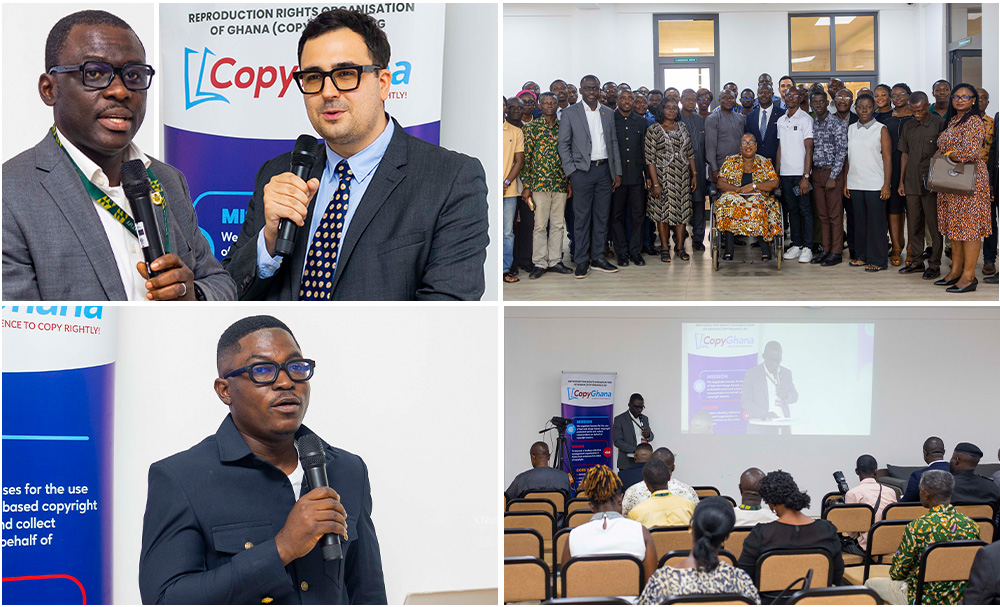The Kwame Nkrumah University of Science and Technology (KNUST) Library has taken a frontline role in strengthening copyright compliance across Ghana’s tertiary education sector, partnering with the Reproduction Rights Organisation of Ghana (COPYGHANA) and the International Federation of Reproduction Rights Organisations (IFRRO) to train universities on collective licensing and responsible use of academic materials.
The event brought together legal scholars, international experts, authors, publishers, librarians and practitioners from copyright bodies including the Copyright Licensing Agency (UK) and the Copyright Clearance Center (US).
Participants examined strategies to ensure that creators receive due recognition while supporting the ethical use of educational materials.
KNUST University Librarian, Dr. Richard Bruce Lamptey, said copyright compliance is not only a legal mandate but a scholarly responsibility.
He emphasised that academic integrity, research sustainability and the economic viability of authors depend on respect for copyright.
He noted that KNUST plays a “dual identity” in the copyright ecosystem, both as a major consumer of academic materials and as a producer of knowledge through its researchers, authors and innovators and therefore must uphold strong copyright practices to protect its intellectual community.
Acknowledging the complexity of enforcement, he said, “The challenge before us is simple to articulate but difficult to execute.”
Justice of the Court of Appeal, Dr. Poku Adusei, addressed the long-standing balance in copyright law between private rights and public access to knowledge.
Drawing on jurisprudence from English, American, Canadian and Ghanaian courts, he said copyright must incentivise creativity while avoiding rules that impede cultural progress.
“Comparative experience has confirmed that copyright balances two competing interests: the public interest and the private interest,” he stated.
He outlined five key lessons for tertiary institutions and cautioned against rampant free-riding on intellectual property, urging respect for fair-dealing principles, institutional responsibility and strict adherence to the law.
He concluded, “There is no way out than for our tertiary institutions to respect the laws on copyright.”
International copyright expert Olav Stokkmo, consultant to WIPO and IFRRO, presented data showing that only one percent of students pay for the intellectual property they use, despite almost all relying heavily on authors’ works.
He said this underscores the urgent need for systems that ensure proper recognition and compensation for creators.
The workshop featured two high-level panel discussions.
The first, “Copyright Compliance in Ghanaian Universities,” included contributions from Dr. Lucy Afeafa Ry-Kottoh, Richard Obeng Mensah, Ernest Oppong and Dr. Wale Okediran, with an intervention from Sheila Narki Djagmah of the Copyright Office.
Panelists discussed measures to build copyright-aware academic environments and reduce infringement on university campuses.
A second panel, “Looking Forward: From Digital to AI,” led by James Bennett (CLA, UK) and Victoriano Colodrón (CCC, US), explored copyright implications of rapid digital transformation and artificial intelligence in higher education.
Dr. Adusei reiterated that collective licensing remains the most sustainable and efficient mechanism for copyright enforcement in tertiary institutions.
He encouraged continued engagement with copyright law as a way of strengthening institutional compliance and safeguarding the intellectual property of creators.

















